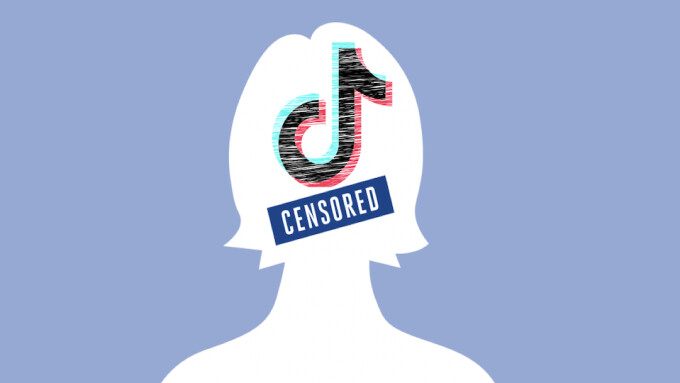BERLIN — German investigative journalists have obtained evidence from TikTok corroborating free speech advocates' claims that some platforms are using “porn filters” to target other controversial content involving issues like politics, human rights and LGBTQ+ expression.
According to a report released last week via German public broadcasting’s flagship investigative program Tagesschau, TikTok was found to be “shadowbanning posts containing certain terms,” allegedly for “safety reasons,” using filters that supposedly only blocked “porn.”
TikTok, owned by ByteDance, a Chinese company with ties to China's governing CCP, told Tagesschau that algorithm flaws were to blame for the blocks of non-porn words such as the German words for “gay," "queer," "LGBTQ,” “homosexual,” “transsexual,” “government in exile,” “National Socialism” and even “Auschwitz,” the name of the infamous concentration camp.
The filter also blocked mentions of “Peng Shuai,” a Chinese tennis player who has been embroiled in a political controversy after accusing a Chinese government official of sexual coercion.
Tagesschau’s findings are consistent with persistent accusations by sex workers and free speech advocates that “porn filters,” which War on Porn crusaders promote as positive enhancements of platform moderation, are expansive and likely to be unleashed against all kinds of expression considered controversial by those who implement them.
Tagesschau found that users were able to post the offending keywords on TikTok, but “the posts were not visible to others.”
In response to a request from the German program, TikTok released a statement saying, "We have set up mechanisms to automatically filter out potentially harmful comments. We are aware that this procedure was not targeted in this case, and we are working at full speed to revise our procedure."
In the case of Peng Shuai, Tagesschau explained, TikTok improbably “claimed that her name was automatically blocked because it contained the letters ‘Hua,’ a derogatory term sometimes used for sex workers in Austria.”
Investigative reporter Catharina Felke said there was a “striking disparity between the company’s public pledges and their actions.”
“We found in our research that terms associated with the LGBTQI community were disproportionately affected by the ban,” Felke told German news site DW. “But at the same time TikTok has been very vocal about supporting LGBTQI creators — some of them even financially. They also started an initiative with the Holocaust Memorial to educate the public about this issue, however they are banning words such as Auschwitz, which of course makes it difficult to even have a discussion about it.”
“Moderating certain keywords without clear rules seems arbitrary,” said Frederike Kaltheuner of Human Rights Watch. “It is highly problematic that as a user you do not understand what the actual rules are.”








